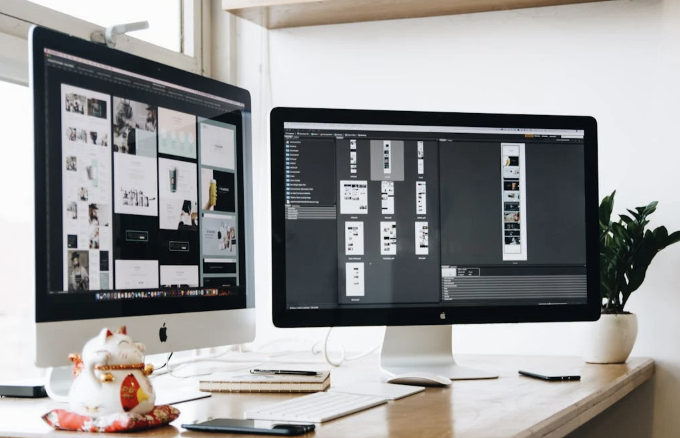In today’s digital age, having a well-designed website is crucial for businesses and individuals alike. Whether you’re launching a new business, revamping your existing site, or creating a personal portfolio, finding the right web designer can make or break your project. Here are essential tips to guide you through the process of selecting the perfect web designer:
1. Define Your Needs and Goals
Before searching for a web designer, outline your project requirements and objectives. Consider:
- The purpose of your website (e.g., e-commerce, informational, portfolio).
- Specific features you need (e.g., online booking, payment gateway, or blog).
- Your target audience and brand identity.
Having a clear vision will help you communicate effectively with potential designers and assess their suitability.
2. Research and Shortlist Designers
Start by researching web designers through:
- Freelance platforms: Websites like Upwork, Fiverr, or Toptal offer access to freelance designers with varied expertise and pricing.
- Design agencies: For larger or more complex projects, consider working with a design agency.
- Referrals: Ask friends, colleagues, or business associates for recommendations.
Shortlist candidates whose portfolios align with your desired style and project scope.
3. Evaluate Portfolios
A designer’s portfolio is a reflection of their skills, creativity, and experience. When reviewing portfolios:
- Look for diversity in design styles.
- Assess whether their work aligns with your brand’s aesthetic.
- Check functionality and user experience of the websites they’ve built.
This will help you identify designers who can meet your expectations.
4. Check Testimonials and Reviews
Client testimonials and reviews provide valuable insight into a designer’s professionalism and reliability. Look for feedback on:
- Communication and responsiveness.
- Adherence to deadlines.
- Quality of work delivered.
Websites like Google Reviews, LinkedIn, or the designer’s own site often feature testimonials from past clients.
5. Consider Technical Expertise
A web designer should be proficient in essential tools and platforms, such as:
- Design tools: Adobe XD, Sketch, or Figma for creating mockups.
- CMS platforms: WordPress, Shopify, or Wix, depending on your needs.
- Coding skills: Knowledge of HTML, CSS, and JavaScript is a bonus, especially for custom projects.
Discuss their technical expertise during the initial consultation to ensure they can meet your requirements.
6. Assess Communication Skills
Effective communication is key to a successful collaboration. Choose a designer who:
- Listens to your ideas and understands your vision.
- Provides clear explanations of their process and timeline.
- Offers regular updates throughout the project.
Good communication ensures that your expectations are met and that any issues are addressed promptly.
7. Set a Realistic Budget
Web design costs can vary widely based on factors like complexity, designer experience, and location. Establish a budget before beginning your search, and be upfront about it during discussions. While it’s tempting to go for the cheapest option, remember that quality design is an investment in your brand’s success.
8. Request a Proposal
Ask shortlisted designers for a detailed proposal that includes:
- Estimated timeline and milestones.
- Scope of work and deliverables.
- Pricing and payment terms.
Compare proposals to find the designer who offers the best value for your money while meeting your project needs.
9. Discuss Long-Term Support
A great website requires ongoing maintenance and updates. Ask potential designers if they provide post-launch support or maintenance services. Having a designer who can assist with future updates ensures that your website remains functional and up-to-date.
10. Trust Your Instincts
Ultimately, trust plays a significant role in your decision. If a designer’s communication, portfolio, or overall demeanor resonates with you, they’re likely a good fit. Conversely, if you feel uncertain or uncomfortable, it’s worth exploring other options.
Conclusion
Finding the right web designer requires careful research, clear communication, and a focus on your specific needs. By following these tips, you’ll be well-equipped to select a designer who can bring your vision to life. A well-designed website is not just an online presence but a powerful tool for achieving your goals. Take your time, and choose wisely!

